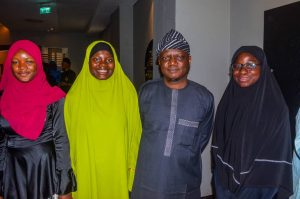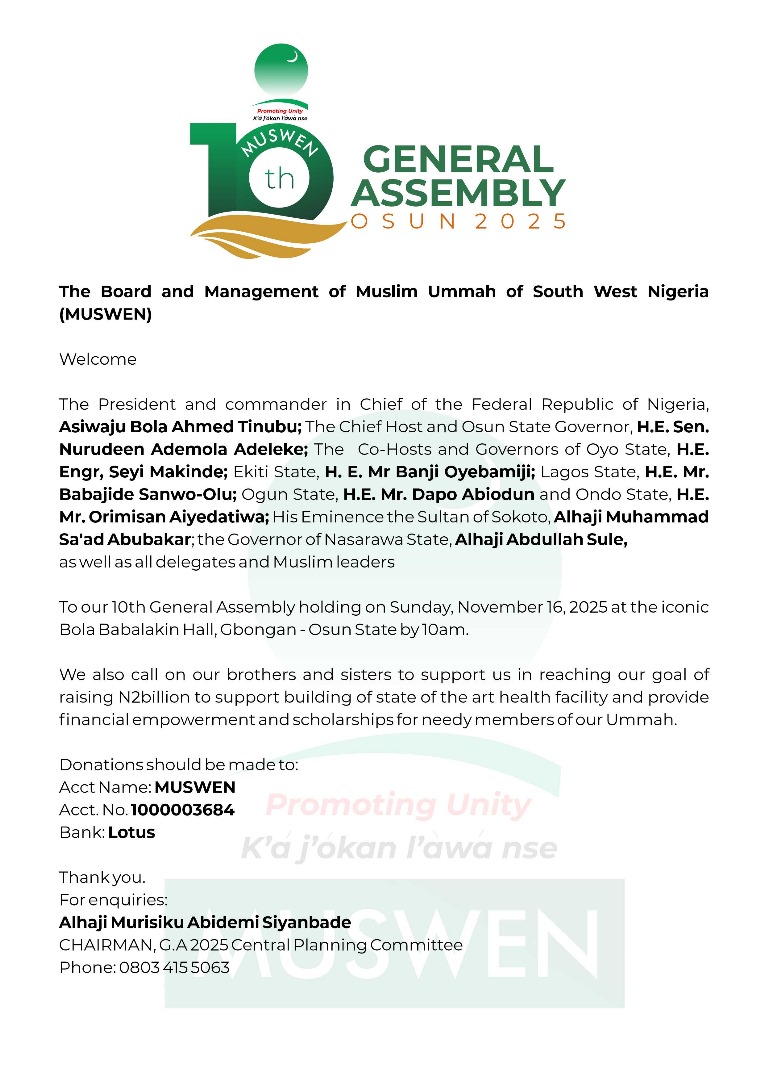At the Muslim First Class Graduates Reception held on Sunday at Radisson Blu, Ikeja, Lagos, stakeholders who spoke with Muslim News expressed concern over the poor remuneration of academics, while offering diverse perspectives on how to address the issue.
* MIND Foundation holds reception to celebrate Muslim first-class graduates
The alarming trend of first-class graduates leaving Nigerian universities in search of better opportunities abroad has sparked renewed debate among policymakers, legal experts, and government officials.
Reports reveal that no fewer than 239 first-class graduates employed as lecturers left the University of Lagos within seven years, highlighting the growing challenge of brain drain in the country’s education sector.
At the Muslim First Class Graduates Reception held on Sunday at Radisson Blu, Ikeja, Lagos, stakeholders who spoke with Muslim News expressed concern over the poor remuneration of academics, while offering diverse perspectives on how to address the issue.
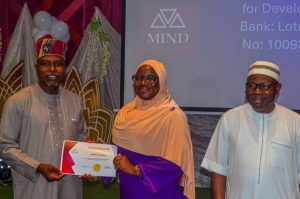
Senator Shuaib Afolabi Salisu, Chairman of the Senate Committee on ICT and Cybersecurity and representative of Ogun Central Senatorial District, acknowledged that Nigerian lecturers are underpaid but urged a balanced view of the matter.
He said, “I believe that our remuneration system can be better, particularly in our tertiary education, But the fact that someone has a first class does not mean they must work in academics.
“Some are naturally brilliant but may be more interested in other sectors, like my own sons who both graduated with first class but are pursuing careers outside academia.”

While stressing the need for improved funding and flexibility in salary structures, Senator Salisu also highlighted the non-financial benefits of academic work.
According to him, “The university environment may not pay as much as banks or oil companies, but it offers time, access to technology, and structured opportunities that can be leveraged for legitimate income streams. That said, the salaries of academics are too poor, and stakeholders must be flexible in funding and running university education.”
Dr. Muiz Banire, SAN, convener of the MIND Foundation, offered a more pragmatic view. The legal practitioner admitted that although patriotism would suggest that graduates remain in Nigeria, the harsh realities justify their search for greener pastures.
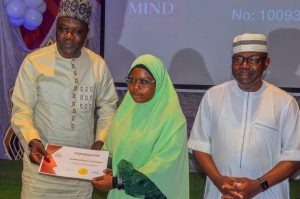
“If I have to be patriotic, I would say no. If I have to be pragmatic, I would say yes. Let them develop and look for greener pastures. Later on, they can come back and enhance our system,” he explained.
Dr. Banire urged the government to prioritize civil servants, drawing examples from Singapore where the best talents are employed in public service and rewarded with competitive salaries.
Also speaking at the event, Hajia Hadiza Bala Usman, Special Adviser to President Bola Ahmed Tinubu on Policy and Strategy, emphasized the government’s responsibility in addressing the issue.
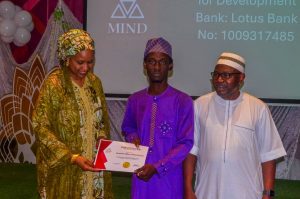
“The government needs to be intentional about recognising and keeping talents. Some of us are part of the government, and we need to see what we can do to entrench policies that will promote the utilisation of our first-class graduates in public service,” she said.
The event ended with a consensus that urgent reforms in remuneration and talent management are necessary to curb the exodus of Nigeria’s brightest minds from its universities.
Muslim News gathered that 87 Muslim first class graduates were celebrated at the well attended event, with call on them to uphold their academic excellence while preparing for life beyond the classroom.
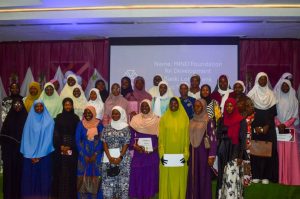
Dr. Banire, SAN expressed thanks and appreciation to Almighty Allah for the success of the second edition, saying that MIND will continue to identify, celebrate, position, protect and facilitate placement of exceptional Muslim graduates.
FACES AT THE EVENT
